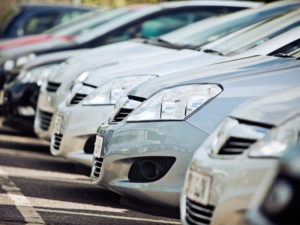Salary sacrifice to still provide time and cost-effective solution, says Fleet Hire
This April’s tax changes on salary sacrifice schemes will not erode the benefits of such schemes in providing a time and cost-effective benefit to both employees and employers.

From April, employees will pay BiK on a new calculation for the cash equivalent of the car.
So says Fleet Hire following the changes outlined in the Government’s Autumn Statement.
From April this year, employees entering into new salary sacrifice arrangements will pay Benefit-in-Kind on a new calculation for the cash equivalent of the car. Where the car is an Ultra-Low Emission Vehicle (ULEV), with an emissions rating of 75g CO2/km or less, there is no change. For other vehicles, the cash equivalent will be the higher of the current emissions-based calculation and the gross salary surrendered.
In response, Fleet Hire, which is part of Australian-listed SG Fleet Group – also a prominent UK car benefits provider, says that while ULEV vehicles are completely unaffected, most low to mid-range emissions vehicles will only see minor changes.
It also gives the example of a Nissan Juke diesel 1.5 DCI Visia 5dr – one of the most popular car choices – with a P11D value of £16,165 and CO2 emissions of 104g/km. On a three-year lease, the average net impact to an employee’s take home pay is no change at all.
Zaf Iqbal, partnerships director at Fleet Hire, said: “Initially, the financial impact of the Government’s changes was not properly understood. So we’ve been busily explaining the true impact to our customers and employee benefits partners.
“As BiK rates rise over time, many cars are either totally unaffected or only mildly affected by the new rules. In summary, the changes complement the existing company car tax regime by further re-enforcing the contribution company cars are making to wider green initiatives,” he said.
Benefits advisor John Messore, director at tax and actuarial consulting company Innovation Professional Services, concurred.
“Car salary exchange schemes remain an extremely valuable benefit to employees,” he commented. “Also, contrary to some published opinions, there are many cars where cost savings can still be substantial. Whilst the largest savings can sometimes be with ULEVs below 75g/km, there are also significant financial savings with higher CO2 cars that have low whole-life costs.”












